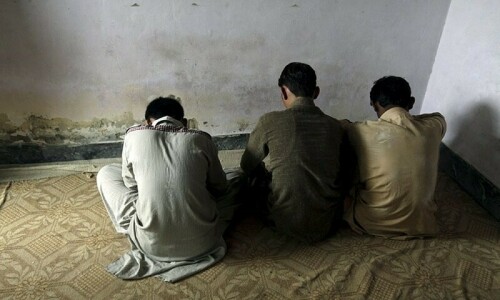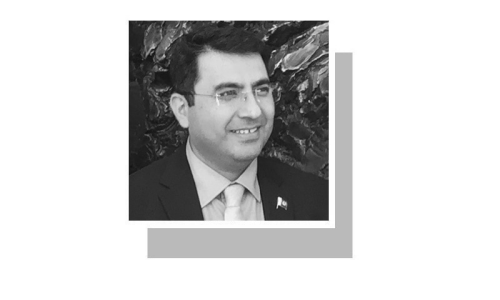
“SHOW me your identity card,” a security official gruffly asks the bus driver at the Malakand checkpost on the road to Swat.
Nearly a decade ago, this post would’ve been manned by a member of the Taliban,who overran the scenic valley under the guise of imposing a self-styled version of Sharia law, until the military kicked them out in 2009.
Each passenger’s identification is checked before the bus is allowed to proceed.
“Before the peace, Taliban established checkposts all around. They would misbehave with the people, especially women, and forced them to wear the burqa. During Fazlullah’s time, I’ve personally seen locals standing in queues for hours answering stupid questions at such checkposts,” says Arshad Khan, a Mingora resident who has moved to Peshawar for work.
It was humiliating for us, he recalls, adding that the residents of Swat were happy now that peace had returned to the area.
With bustling bazaars filled with shoppers, and uniformed schoolchildren on their way to school; it is hard to imagine that this serene valley was once held by fundamentalists, who banned all forms of artistic and cultural activities.
The worst-hit was Hunermandan Gali, a neighbourhood in the Banr locality famed for its artists, musicians, singers and dancers. Singers were issued death threats and those that did not flee were forced to turn tableeghi.
Among the nearly 50 families who fled the area was Ghazala Javed, the Pashto nightingale whose flame was snuffed out all too soon. Talented and beautiful, she became a singing sensation, and at one time, was the highest paid Pashtun artist in Kabul.
Her story came to abrupt end when she was murdered by her ex-husband in Peshawar in 2012, but her legend still lives on in Banr.
“They were horrible days… I don’t like to talk about them because I want to forget about that time,” says Jehangir Khan, a relative of Ghazala whose own daughter has now assumed the young singer’s mantle.
Under the watchful eye of her father and music teacher, 18-year-old Saadia Shah croons a melodious Pashto number as she keys the harmonium in front of her. Her family was one of those who fled the Taliban, and only returned seven years later, when normality had been restored to the area.
Flanked by her younger sister, Maria, Saadia says she’s not interested in going back to Peshawar. “The environment there is not conducive for artists. There are gangs who extort money from young singers and take advantage of our inexperience. I am more than happy to perform in my own hometown,” she says, with slight smile.
The siblings’ repertoire is not limited to Pashto alone; they are very proficient in Urdu and, surprisingly, Punjabi songs as well. Maria, who is training to be a dancer, often accompanies her father and sister at performances.
Her ustaad, Umer Rehman, says that now, six to seven families had returned to Swat to restart the local music scene, adding that most gigs are held outside the city areas, so that the police don’t bother them.
Although peace has returned to the valley, security is still a primary concern and the military presence here is hard to miss. “Police and armed forces personnel jointly man several checkpoints. There are approximately 6,000 policemen in Swat and most of them are deployed on checkposts,” says Habibullah, deputy superintendent of police for Swat city.
But with peace came other problems: Saidu Sharif resident Anwar Shah complained that inflation had made it very hard for those earning a meagre living, while Mingora-resident Zeeshan Khan recalled how all their belongings and property were destroyed during the Taliban rule and the subsequent Operation Rah-i-Rast.
“The time we spent in camps for Internally Displaced Persons (IDPs) in Mardan was a very difficult experience,” he recalled, adding that they were just glad to be back home.
Published in Dawn, December 22nd, 2017














































Dear visitor, the comments section is undergoing an overhaul and will return soon.